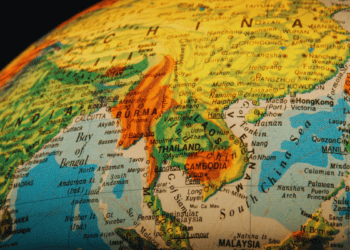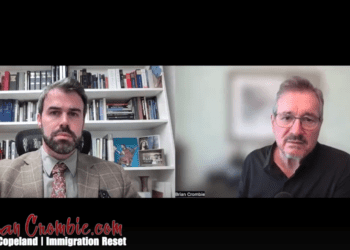Writing in the Globe and Mail, Dwight Newman, author of a forthcoming MLI paper, warns that the resignation of Assembly of First Nations Chief Shawn Atleo will pose problems for the federal government in its duty to consult aboriginal communities. The column highlights the legal framework that requires governments to consult a First Nation when governments consider action that could affect their aboriginal rights. However, Newman worries that divisions within aboriginal communities, such as the varying opinions on educational issues that caused Atleo’s resignation from the AFN, will make it more difficult for governments to consult in the future. “The prospect of the kind of less coherent approach to consultation urged by more radical voices carries serious risks of blocking important, badly needed reforms that are in the interests of First Nations children”, he writes. MLI will release Newman’s new paper on the subject later this week.
Dwight Newman, May 6, 2014
Shawn Atleo’s abrupt resignation as Assembly of First Nations (AFN) national chief last Friday highlights divisions amongst First Nations chiefs about the federal government’s reforms of on-reserve education. In that sense, it marks the sort of political division that exists within any diverse community, albeit complicated in the AFN by a division between communities with rights under historic Treaties and those without those same Treaty rights. It is to be hoped that responsible leadership on all sides finds positive paths forward in the time ahead.
At the same time, that division – and Chief Atleo’s resignation seemingly in response to it – illustrates a set of challenging questions about how Canadian governments should consult First Nations when taking action on issues that affect First Nations. On issues of consultation, there remain many misunderstandings. Some of these have arguably affected the course of events with regard to Mr. Atleo. And some interpretations of consultation obligations urged by more radical voices in the Aboriginal community may actually harm Aboriginal communities themselves.
In 2004, the Supreme Court of Canada’s decision in a case involving the Haida Nation created a new legal rule of a duty to consult a First Nation when a government was considering action that could affect the First Nation’s Aboriginal rights, whether or not there was complete certainty on the scope of those rights. In 2005, the Court’s decision in a case involving the Mikisew Cree extended this rule to rights held under historic Treaties. In both cases, the duty to consult was aimed at government action based on existing laws, or what we might call administrative decisions of governments. Governments must consult before making administrative decisions – like issuing a permit or licence – where their actions may affect Aboriginal or Treaty rights.
This duty to consult has massive implications, particularly in natural resource contexts. What is important for present purposes is the proposed extension of the duty to consult, urged by some in the Aboriginal community, to legislative action. The claim is that before the government passes a new law that may affect Aboriginal communities, it should have to consult with all potentially affected Aboriginal communities.
As interpreted by more radical chiefs, like Derek Nepinak – the Grand Chief of the Assembly of Manitoba Chiefs – that principle means that the government should consult individually with each potentially affected First Nation. On national legislation, that means consulting with more than 600 individual First Nations. A similar view was present amongst many involved with Idle No More – including Chief Atleo’s leadership rival, Pam Palmater.
Those urging such an extension point to an article, Article 19, of the United Nations Declaration on the Rights of Indigenous Peoples that suggests an international aspiration toward consultation with Indigenous communities on laws that affect them. That declaration is not directly legally binding, but it may gradually persuade Canadian courts. Thus far, however, the courts have declined to create such a duty to consult on legislation, although a 2010 Supreme Court of Canada decision went out of its way to say that the question remained unresolved.
The current situation on the education legislation is an example of some of the very problems in suggesting a formal duty to consult each community individually before passing laws. Attempts to obtain complete consensus led to protection for on-reserve matrimonial property being stymied for decades. Government attempts to engage with every community individually on educational reform would most likely leave another generation of First Nations children mired in a dysfunctional system.
There needs to be an orderly means of consulting with national representative organizations that can represent the interests of grassroots First Nations. The government’s dedicated work with the AFN has been one of the key ways of pursuing that aim on First Nations education, and Chief Atleo’s approach achieved a lot of progress with government. The prospect of the kind of less coherent approach to consultation urged by more radical voices carries serious risks of blocking important, badly needed reforms that are in the interests of First Nations children. For the sake of our shared futures, Chief Atleo’s resignation should serve as a wake-up call to all Canadians.
Dwight Neman is a Canada Research Chair in Indigenous Rights in Constitutional and International Law at the University of Saskatchewan.




